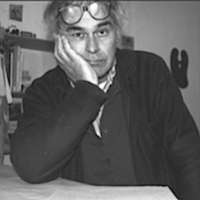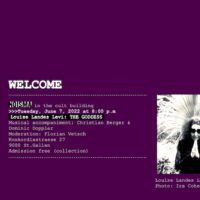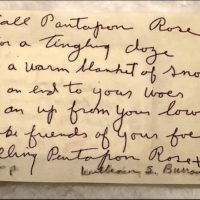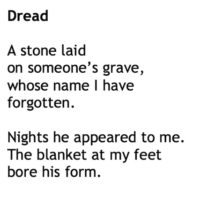Also known as Richard Kostelanetz, or, as the NYTimes dubbed him, “the bibliomaniac of Ridgewood,” he is the author of hundreds of books — yes, hundreds, you read that right — and recently turned 82.
Celebrating William Wyler
His Hometown in Alsace Puts on a Hollywood Show
Wyler was Laurence Olivier’s mentor, the love of Bette Davis’s life, John Huston’s best friend, Audrey Hepburn’s inspiring taskmaster, and Barbra Streisand’s father figure. His major motion pictures were touchstones for an entire generation. He guided more actors to Academy Awards than any other director. He also won three Oscars himself. “Olivier once told me he learned more about film acting from Wyler than from any other director; I can say the same,” Terence Stamp recalled in my Wyler biography “A Talent for Trouble.” Despite his reputation as a demanding director who sometimes drove actors to tears, he was a beguiling personality in private.
A Body of Work: ‘He could hear it breathing’
The pulse of Cold Turkey Press depends on a publisher* who maintains that well-made limited editions can be more influential than widely disseminated mainstream publications. But it also depends on the dissident poets and artists like Malcolm Ritchie, the late Heathcote Williams, Mark Terrill, the late Thomas Brasch, Jay Jeff Jones, David Erdos, William ‘Cody’ Maher, and others whose work he has chosen to publish.
On Ambition: From Nixon to Keats to Elvis, from Little Richard to Samuel Johnson, from Moses to Hannibal, Lenin to Alexander the Great, Spinoza to Ghandi to Albert Camus
I know of no writer who covers as much territory with as much lighthearted intelligence as A. Robert Lee. Here he is on the subject of ambition in his latest book, OUTSIDE IN: Hinges and Swivels, just out from Time is an Ocean Publications. — jh
‘A Solo Among Men’
Abbie Conant won an audition for first trombone in the Munich Philharmonic Orchestra. But the conductor, Sergiu Celibidache, preferred a man upfront and demoted her. Conant speaks about coping with that as she looks back at her tenacious struggle for justice. Conant’s husband, the composer William Osborne was instrumental in a feminist campaign against sexism at the Vienna Philharmonic. As he said at the time, “If it were just the Vienna Philharmonic, the whole issue would be much too parochial to bother with. The real issue is that women are not treated fairly …”
These Many Years Later, Algren for Real
For the first time, yesterday, I saw the DVD cover art of “The End Is Nothing the Road Is All,” a 2015 documentary. I was poking around on my laptop when I came across it by accident. Except for the fact that it showed up on Facebutt, which I try to avoid, it was a nice surprise.
Imagine That!
A Swiss Counterweight to Conformism
UPDATED with videos of the performance. In the heart of St. Gallen, a town not far from Zurich, where Dada began, there is a haven for the outlandish and the curiously extravagant. It is a place for the exchange of ideas and information, passionate discussion, chamber music, and for poetry. The American poet Louise Landes Levi, who is based in Japan, performed there on Tuesday, June 7.
A Uranium Jubilee for the Queen of the Arms Trade
How Queen Elizabeth II profits. Text by Heathcote Williams. Editing and narration by Alan Cox.
Memory Lane: ‘It Was a Burning Hot Day in Paris’
“After going to see the Villa Seurat, where Henry Miller lived when he wrote ‘Tropic of Cancer,’ we stopped at the Café Zeyer for drinks. The Zeyer, which he described as ‘a gaudy place with red plush and mirrors and polished brass,’ was where Miller often took a ‘fine à l’eau’ and argued metaphysics with friends.” — Supervert
‘Wish You Hadn’t Said That’
Long before Qanon conspiracy theories took hold, the poet Janine Pommy Vega was accused of channeling the devil. This was her reply.
Late Light Verse: Song Lyrics by William Burroughs
Written in 1995, “Pantapon Rose” refers to an uptown prostitute in Manhattan who sometimes sold the opium alkaloid Pantapon to junkies in need of a fix. Burroughs put her in “Naked Lunch.”
Shooting From the Lip
Having Read Your Email, ‘I will not reply / to yours …’ per Wislawa Szymborska.
‘Dread’ by Florian Vetsch
A poem changes with each reading. This one was not written about the catastrophe in Ukraine. But it could have been. It is translated from the German original and extracted from the book ‘Tanger Trance,’ which was published in 2010 in four languages.
Preview: The Many Ghosts of Ultrazone
William Burroughs is not around anymore. He died in 1997. But his ghost definitely is. It has returned to Tangier in “Ultrazone,” a moody yet drole forthcoming novel.
Annette Gordon-Reed on the Art of Biography
The distiguished historian is slated to give this year’s Annual Leon Levy Biography Lecture on Wednesday (May 4 at 6 p.m. ET), in a free, online presentation open to the public. Her investigative, multigenerational biography “The Hemingses of Monticello: An American Family” won both the 2008 Pulitzer Prize in History and the National Book Award.
Book Review
Free Sonnets That Even Blake Would Favor
“All That Would Ever After Not Be Said” contains a sequence of free sonnets of experience that even Blake himself would favour. These small poems are tears for the tongue They expose existential silence and the pressures of art to countermand it. They are dark diamonds. — David Erdos
Ben Vautier: ‘What to Do?’
The noted Nice-based Fluxus writer and artist Ben Vautier sends out a message, regularly by email, to friends and others. But the one that came the other day was unusual. Rather than simply conveying news of cultural and artistic events that personally interest him, it was something of a ‘cris de coeur.’

















